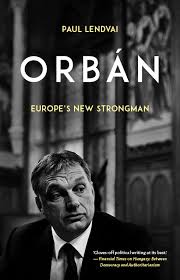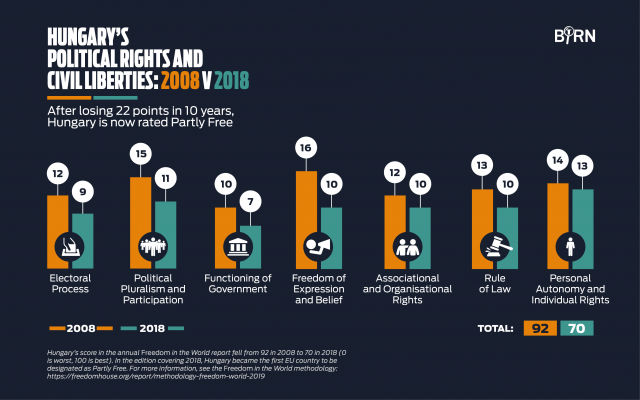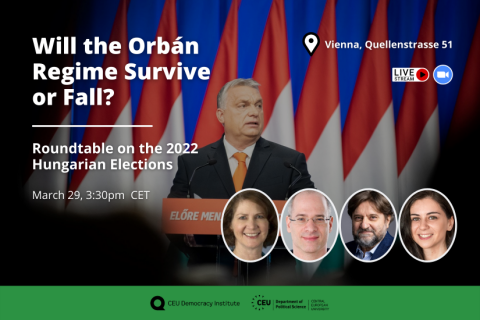In his infamous Transylvania speech announcing Hungary in 2014 as an “illiberal state,” Viktor Orban also called Russia—along with China, Singapore, India, and Turkey—a model for Hungarian society. But the Ukraine invasion brought a new measure of Orban’s defiance: Hungary now finds itself isolated even from Poland, the country that joined it in wreaking havoc on the E.U.’s fundamental values, TIME’s Amanda Coakley reports:
Though Hungary has thrown open its eastern frontier to Ukrainians fleeing the Russian invasion, unlike Poland it has refused Kyiv lethal aid and prevented weapons to Ukraine from being transported via its territory. Once again Orban has framed Russian aggression in Ukraine as an issue beyond his jurisdiction and promoted so-called “strategic calmness.”
Pro-government media has been careful not to lay blame for the war squarely on Putin, The FT adds. Less than two-thirds of Hungarians, and less than half of Fidesz voters, think of the war as Russian aggression, according to a poll by the Publicus Institute, a Hungarian think-tank. A quarter of Orban supporters think of the war as a defensive operation by Russia.
 Orban is the West’s pro-Putin outlier, says Péter Krekó (right), the director of the Political Capital Institute, a Budapest-based think tank. Hungary’s prime minister is committed to splitting the difference between Brussels and Moscow, he writes for Foreign Policy.
Orban is the West’s pro-Putin outlier, says Péter Krekó (right), the director of the Political Capital Institute, a Budapest-based think tank. Hungary’s prime minister is committed to splitting the difference between Brussels and Moscow, he writes for Foreign Policy.
Political analysts say the war in Ukraine, and shifting voter preferences so close to Hungary’s national elections in early April, are problematic for Mr. Orban, prime minister since 2010, The New York Times reports.
Mr. Kreko said the government had engaged in “double talk” by saying it supports Ukraine and condemns Russia, while “Kremlin-friendly conspiracy theories are being promoted in the mainstream government-aligned media.”
“Right now, I think because Orban has so much aligned himself with Russia, I think it’s detrimental to his international image as well,” said Kreko. “And he might win one more round, but I think he just will not be able to fulfill all his authoritarian dreams.”

National Endowment for Democracy (NED)
A bright red, 18-wheel truck rolled into the Hungarian town of Hatvan this month to deliver something rarely found in the town: a different point of view. Within a few hours, its trailer had been unfolded into a glass-walled live television studio. There, in the main square of the sleepy town an hour’s drive from Budapest, presenters conducted an interview with an opposition politician, talked about environmental issues and covered a teachers’ strike at length, The FT’s Marton Dunai reports:
The truck was an initiative by Partizan, an independent Hungarian media venture, which usually hosts its leftwing political talk show on YouTube. Its aim was to cut through Hungary’s blanket of media coverage loyal to Prime Minister Viktor Orban and bring an alternative point of view to rural areas. … Partizan is part of a new breed of media that uses online channels and funds itself directly from users. Gulyas, a theatre manager turned political activist, protested against Orban for years before creating Partizan in 2018. With an operating budget of about €700,000 a year, the channel reaches more than a quarter of a million viewers daily — in a country of 10mn — with talk shows, documentaries and long political interviews.
 “Public service media has been neutered and turned into a propaganda machine, while commercial TV has struggled to generate political content,” said Partizan’s founder and main anchor Marton Gulyas (above). “Our success has shown that many politically involved viewers had felt abandoned.”
“Public service media has been neutered and turned into a propaganda machine, while commercial TV has struggled to generate political content,” said Partizan’s founder and main anchor Marton Gulyas (above). “Our success has shown that many politically involved viewers had felt abandoned.”
Half of Partizan’s funding comes from micro-donors, with a few larger sources, including international ones such as the Washington-based National Endowment for Democracy (NED), which paid for the truck tour, The FT’s Dunai adds.
In Hungary, informal activism focused on defending press and academic freedoms has been growing, although grassroots organization has yet to gain long-term traction or have a strong political impact, Carnegie analysts Richard Youngs, Niccolo Milanese and Kalypso Nicolaidis note in a new report, Informal Civil Society: A Booster for European Democracy?
Even if Orban wins another term [in the forthcoming election], former NED Reagan-Fascell fellow Kreko thinks Orban’s dream of creating a right-wing nationalist bloc in Europe is dead. The war in Ukraine has driven a wedge between him and the nationalist government in Poland, which favors an aggressive response to Russia, he tells The New York Times.
 “The Orban regime wants to solve this situation by sending all possible messages to everyone, from the hard-core pro-Atlanticists to the hard-core Russia supporters,” said Kreko. “Everyone can cherry-pick a narrative.”
“The Orban regime wants to solve this situation by sending all possible messages to everyone, from the hard-core pro-Atlanticists to the hard-core Russia supporters,” said Kreko. “Everyone can cherry-pick a narrative.”
Will the Orbán Regime Survive or Fall? Roundtable on the 2022 Hungarian Elections. Join a panel discussion on Hungarian Elections.
Speakers: András Bozóki, Professor at the CEU Department of Political Science and Research Affiliate at the CEU Democracy Institute. Jennifer McCoy, Professor of Political Science at Georgia State University, Research Affiliate at the CEU Democracy Institute, and non-resident scholar at Carnegie Endowment for International Peace. Carolina Plescia, Assistant Professor at the Department of Government, Faculty of Social Sciences at the University of Vienna. Moderator: Zoltán Miklósi, Associate Professor at the CEU Department of Political Science, and Research Affiliate at the CEU Democracy Institute. Tuesday, March 29, 2022, 3:30 pm – 5:00 pm. REGISTER








